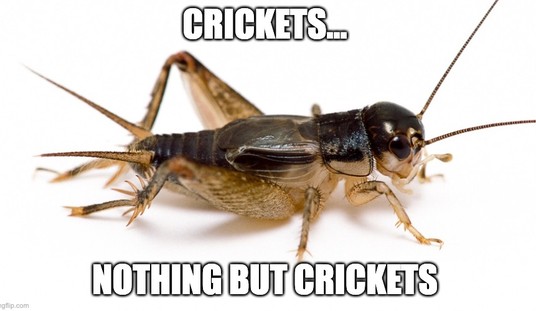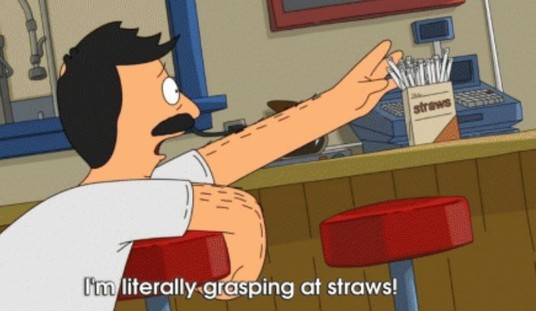You’ve probably seen the National Geographic photos of a starving polar bear in your feed if you’ve been on Twitter for about 30 seconds over the weekend. It’s everywhere:
"We stood there crying—filming with tears rolling down our cheeks." https://t.co/1gx52VO8xw
— National Geographic (@NatGeo) December 8, 2017
And liberals are using it to prove global warming and man’s role in killing the planet, or something:
https://twitter.com/JessicaValenti/status/939536156282314752
But it’s not just liberals. MSM news sites are saying the sad bear “exposes climate change impact”:
Footage of starving polar bear exposes climate change impact – video https://t.co/MFtYm7c853
— Guardian news (@guardiannews) December 9, 2017
And if you don’t believe it, then you’re “delusional and disgusting”:
If this emaciated polar bear doesn't prove global warming is real, then you're delusional and disgusting: https://t.co/QRfrOnJeSK pic.twitter.com/KpYRuvfBIc
— The Root (@TheRoot) December 10, 2017
Well then, let’s take a look at what Eric Holthaus of Grist has to say, as he is what we might term a climate alarmist:
Important fact check from a wildlife biologist on those horrible starving polar bear images we've all seen. This is why it's important to get the facts and science right first in any climate communication. (And why PB's aren't great messengers) https://t.co/NLwh7iqctc
— Eric Holthaus (@EricHolthaus) December 10, 2017
Wait … what’s that? The starving bear isn’t linked to global warming? As they say, BOOM. Here’s the thread (TL;DR: the bear probably has cancer and the bear populations in the area aren’t threatened anyway):
Recommended
That bear's in rough shape, no doubt about that. There have been photos and videos of emaciated PB going back 10 years, at least. And some PB have been starving for as long as PB have existed. I suspect that one has other issues, which I'll get into below.
— Jeff W. Higdon (@jeffwhigdon) December 9, 2017
Videos like this tug at heartstrings and aim for emotional responses. But they have sig potential to backfire because they make the deniers dig in even more, partly because over the top statements that accompany them are usually easy to pick apart.
— Jeff W. Higdon (@jeffwhigdon) December 9, 2017
Statements like "PB are going extinct and here it is in real time" (original statement assoc w/ video said something to that effect) are easy to attack, and thus don't help IMO.
— Jeff W. Higdon (@jeffwhigdon) December 9, 2017
Depending on where on Baffin was this taken, it would be a bear from one of 5 mgmt units. Likely east Baffin coast given the Inuit camp (not much human activity on west side of Foxe Basin), so prob from Baffin Bay or Davis Strait MU.
— Jeff W. Higdon (@jeffwhigdon) December 9, 2017
Both considered "stable" by IUCN SSC (2017 data). Could be Lancaster Sound MU if on north Baffin coast too, that one is "data deficient", but certainly not collapsing in a flurry of starving PB.
— Jeff W. Higdon (@jeffwhigdon) December 9, 2017
So to consider this bear to be in any way representative of the bears in the population, whichever one it's from, would be incorrect and misleading. @grizzlygirl87 raised some great points along these lines.
— Jeff W. Higdon (@jeffwhigdon) December 9, 2017
This animal would fall way outside the 95% CI for body condition in a sample from any of these MUs. Shouldn't be ignored, of course, but shouldn't be treated as representative either.
— Jeff W. Higdon (@jeffwhigdon) December 9, 2017
This animal would fall way outside the 95% CI for body condition in a sample from any of these MUs. Shouldn't be ignored, of course, but shouldn't be treated as representative either.
— Jeff W. Higdon (@jeffwhigdon) December 9, 2017
Now, for what I think ("think" being the operative word, because I def don't know with any certainty) is going on with this particular PB – it has an aggressive form of cancer.
— Jeff W. Higdon (@jeffwhigdon) December 9, 2017
Osteosarcoma, a type of bone cancer, has been recorded in PB (griz too). Source is "Zoobiquity: What Animals Can Teach Us About Being Human", a 2012 book by Dr. B.N. Horowitz and K. Bowers (you can see this section via a Google Books preview if interested).
— Jeff W. Higdon (@jeffwhigdon) December 9, 2017
I can't find any published lit about it in bears, unfortunately, and I'm certainly no cancer expert. But it's fairly common in dogs (leading cause of death in golden retrievers, according to that book) and many of the symptoms described are being shown by that PB.
— Jeff W. Higdon (@jeffwhigdon) December 9, 2017
(Fun fact I learned today – there's a National Canine Cancer Foundation w/ an awesome webpage).
— Jeff W. Higdon (@jeffwhigdon) December 9, 2017
That bear is starving, but IMO it's not starving because the ice suddenly disappeared and it could no longer hunt seals. The east Baffin coast is ice free in summer. It's far more likely that it is starving due to health issues.
— Jeff W. Higdon (@jeffwhigdon) December 9, 2017
Last one (I think…)
What the Sea Legacy crew should have done was contact the GN Conservation Officer in the nearest community and had this bear put down. And necropsied. The narrative of the story might have turned out quite different if they had.
— Jeff W. Higdon (@jeffwhigdon) December 9, 2017
Well, that would be … What’s the word for it? … Oh yeah … science.
***
























Join the conversation as a VIP Member